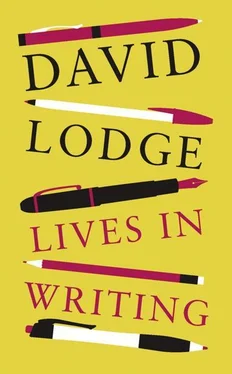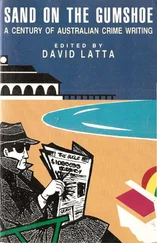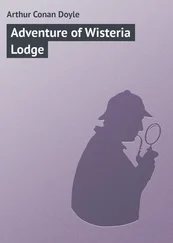The novelistic method involves inventing — or, as I would prefer to say, imagining — innumerable small units, and often larger ones, in the continuum of represented experience, but as long as these are compatible with the factual record, and the book is presented and read as a novel, not as history, no harm is done. Antony Beevor once remarked, no doubt tongue in cheek, that he wished writers of historical novels would print the bits they made up in bold type so the reader would know which they were. As he was well aware, this would completely negate the novelist’s aim, which is to make the seams between the researched facts and the imaginative embodiment of them invisible to the reader, in order to create that illusion of intimate access to another’s experience which the novel can achieve more effectively than any other narrative form. In fact, if A Man of Parts was printed as Beevor suggests, most of the text would be in bold. As any competent reader knows, a detailed description of a historical person’s thoughts and feelings has to have been extrapolated from a few factual clues, since every individual’s consciousness is largely concealed from others, and most dialogue in a biographical novel must be similarly worked up from a small amount of data since whole conversations, especially in the pre-electronic age, are very rarely recorded for posterity. An example may be useful at this point.
In July 1905 Wells spent a week at the Blands’ spacious, ramshackle eighteenth-century house, Well Hall, having arrived there uninvited. In her biography of E. Nesbit, Julia Briggs describes the episode as follows:
One afternoon towards the end of July H.G. turned up at Well Hall entirely without warning, carrying his valise and announcing, ‘Ernest, I’ve come to stay.’ He called Edith ‘Ernest’ because he had first supposed that the bare initial stood for a man’s name, and what after all was more important than being Ernest? (Coincidentally, an early Bodleian cataloguer made the same assumption.) Edith was delighted with Wells’s confident expectation of her hospitality, and immediately set about organizing entertainments in the form of tableaux and charades to celebrate his arrival and amuse him next day. These were based on titles of his books and he had to guess what they were: for Love and Mr Lewisham , Paul sat at a table, studiously reading, while little John, got up as Eros with a bow and arrow, shot at him. Wells stayed about a week, on this occasion, and while he was there completed the draft of his novel In The Days Of The Comet , writing in the garden as Edith herself did; it was not finally published till the following year.
As far as I recall, no biographer of Wells has thought this visit worth recording, perhaps because Wells himself does not mention it in the Autobiography or its Postscript, Wells in Love . The accounts of his and Jane’s relationship with the Blands in those books are sarcastic in tone, coloured by the breach that occurred as a result of his affair with Rosamund, and give little idea of how intimate with each other the two families were for several years, and how well Edith and H.G. got on together at that time. The visit to Well Hall recorded by Julia Briggs in her biography of Edith illustrates that very vividly, and I made a note to include the episode in my novel when I came across it. The corresponding passage in A Man of Parts to the one quoted above is as follows:
He didn’t wire in advance, but arrived uninvited and unannounced at Well Hall, carrying his valise, and said to Edith, when she came into the hall to see who had called, ‘Hallo, Ernest, I’ve come to stay for a few days.’ Her face lit up with a smile of pleasure. ‘What a lovely surprise!’ She took his hand and kissed him on the cheek. ‘You may be wondering why — ’ he began, but she waved away his explanations. ‘We’re always delighted to see you, H.G. Stay as long as you like.’
That evening the family put on charades based on the titles of his books to amuse him and make him feel at home. Paul sat at a table reading text books and taking notes while young John, dressed as Cupid, mimed taking shots at him with a bow and arrow. He guessed ‘Love and Mr Lewisham’ immediately but pretended to be puzzled for a while to let the actors have their fun. An item performed by Edith and the housekeeper-nanny Alice Hoatson kept him guessing longer, till he exclaimed ‘Anticipations!’ Rosamund, now eighteen and a striking young woman, with a pretty face and a buxom figure, did ‘The Sea Lady’, miming the breast-stroke while pursued around the room by Hubert Bland wielding a shrimping net. He couldn’t resist contributing to the entertainment with a couple of improvisations on Nesbit titles, which were warmly applauded. He hadn’t enjoyed anything so much for weeks, and retired to bed in good spirits. ‘You won’t mind if I’m not in evidence tomorrow until the afternoon,’ Edith said as she wished him a good night. ‘I work in the mornings.’ ‘So do I,’ he said. ‘That’s perfect then,’ she said. here
This follows my source fairly closely, but there are obvious differences which belong to the novel form. Briggs refers to Wells as ‘H.G.’ which is how his family and close friends always addressed him by this date. It’s an index of the familiarity that existed at this time between him and the Blands. My passage begins: ‘He didn’t wire in advance. .’ The third-person pronoun locates the narrative in Wells’s consciousness, and is used throughout the passage, and in fact throughout the novel, for this purpose. It is usually possible to maintain this intimate effect with some stylistic variation, by using the point-of-view character’s given name, as I did frequently in Author, Author — for example, ‘ Henry of course kept his opinion to himself .’ Wells’s Christian name was Herbert, and he was known to his parents and relatives as ‘Bertie’. Early on in planning the novel I decided it would be inappropriate to use either of these names in passages focalised through his consciousness, since in most scenes other characters would not be using it to address him. On the other hand, I couldn’t use ‘H.G.’ as I had used ‘Henry’ in Author, Author. That honorific abbreviation, bestowed upon him in mature adulthood by others, he accepted and obviously liked, but he wouldn’t think of himself as ‘H.G.’. If I had begun the passage, ‘H.G. didn’t wire in advance’ it would inevitably open up a gap between the narrator and the narrated for the reader, if only subliminally. Here and elsewhere, therefore, I was restricted to the third-person pronoun (and obliged to use some ingenuity to avoid possible confusion with antecedent references to characters of the same gender).
There is much more dialogue at the beginning of my passage than in Briggs’s, and all of it except Wells’s announcement of his arrival was imagined, to bring out the warmth of the relationship between Edith and H.G. This dramatises the biographer’s summary statement that ‘Edith was delighted with Wells’s confident expectation of her hospitality’. The explanation of why he called her ‘Ernest’ is omitted because I introduced it earlier in the novel in describing their first meeting. The reference to the Bodleian cataloguer — a typical biographer’s aside — is also omitted as irrelevant to the situation. The action is focalised through H.G.’s consciousness — most obviously when he pretends to be puzzled by the charade of Love and Mr Lewisham. Briggs describes only one charade; I invented two more to create an effect of ‘scene’ rather than summary, and made the enactment of The Sea Lady anticipate Bland’s later inappropriate sexual interest in his daughter. Since I could not imagine the intensely competitive H.G. being a purely passive spectator, I made him reciprocate by miming some titles of Edith’s books. The dialogue at the end of the passage dramatises the information that both hostess and guest worked on their writing during Wells’s stay, and prepares for an extensive development of this fact in the following pages. For me this long visit of Wells was a very useful opportunity to show the two writers discussing their work-in-progress, and to inform or remind the reader of the content of In The Days Of The Comet , which was to have important consequences for Wells’s career, and of Nesbit’s masterpiece The Railway Children.
Читать дальше












